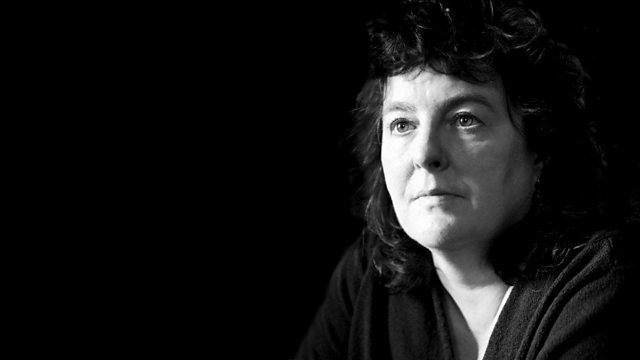Vocation
More my shadow than my shadow,
it is mute, as it must be.
I walk it along the world’s wide road,
chanting its reticence; what I think it might say
if it could, or wished to.
If it snags on the hedgerow,
a nest is a choir I could hold on a glove.
In love, its surface shines like ink;
I dip my pen again.
But it hoards grief, sometimes for years.
So I am supplicant; alert at the lip
of wordlessness, how can I tell?
Or it circles me, a sundial’s slow arrow,
patient, waiting to cover my face
with its scrap of black silk.
Though should it stand still in the lane,
Even the empty chapel speaks in chimes.
I have known it: difficult, accessible.
It is the taste of imminent weather.
If its eyes smell onions, I shall weep anon.
CAROL ANN DUFFY
****
It’s tempting to see this week’s poem from Carol Ann Duffy’s most recent collection, Sincerity, as a personal one. Perhaps, even, that it anticipates recovery of her private, writing self after a decade in a public role as UK poet laureate. But of course the speaker need not be a poet and, if they are, need not be the author.
Subtly shifting images embody the vocation as it is transformed from shadow to actuality. The opening stanza suggests delicately balanced conflict: the vocation itself is mute, but the protagonist is occupied with “chanting its reticence”. The idea of the calling’s reluctance to speak is odd and interesting. These lines suggest that there is some kind of pure impulse that is betrayed in the demonstration of the vocation, however sincere the intention and process.
The shadow image is sustained through metaphorical shifts, sometimes of a conditional nature: “What I think it might say / if it could, or wished to” and “If it snags on the hedgerow”. Love brightens its surface so that it “shines like ink” – a simile that connects it to writing. Time and death are evoked by later possibilities: as a “sundial’s slow arrow”, the relentless vocation-shadow will eventually reach the speaker’s face with its mourning veil of “a scrap of black silk”. The derelict chapel’s imagined chimes finally arrest its attention, perhaps in the same country lane where the songbirds chorused earlier. Always, it’s in local experiences and sharply sensed non-verbal intuition that the vocation manifests itself. And the narrator’s relationship with that vocation is humble and tentative, nowhere more than in the beautiful hesitations (“supplicant, alert at the lip / of wordlessness”) of the fifth stanza.
In structure, stanzaic blocks interspersed with single lines, Vocation faintly resembles Duffy’s Valentine although less freely assembled. (Vocation’s two separated parts mirror one another in stanzas whose line count is 5, 2, 2, 1.) The pace and cadence are gentler, of course. But no keen Duffy reader could fail to pick up the apparent reference in Vocation’s last line to the famous declaration in Valentine: “I give you an onion.”
“Mine eyes smell onions; I shall weep anon,” a line from the last scene of All’s Well That Ends Well, is spoken by the elderly nobleman Lafeu. Helena’s return from seeming death to be united with her not entirely worthy lover Bertram moves Lafeu to genuine tears. A quip from the same character earlier in the scene could be relevant to the imagery of the nest held on a glove in line seven: “This woman’s an easy glove, my lord; she goes off / And on at pleasure.” A vocation may be similarly unstable, perhaps? I think there’s something more, though, to that glove.
Vocation sits in the collection in a small nest of Shakespeare-referencing lyrics. And here’s the clue to a reading of the poem as a wonderfully tactful and accomplished dramatic monologue. The persona who “walks” their vocation’s shadow “along the world’s wide road” and falls into love, uncertainty, deep humility and mourning, reveals himself in a muttered, prophetic first draft of Lafeu’s line, “If its eyes smell onions, I shall weep anon.” He is (or is mostly) the glove-maker’s son, William Shakespeare.
May the vocation remain with Carol Ann Duffy on her future wide roads and hedgerow-shaded lanes.

